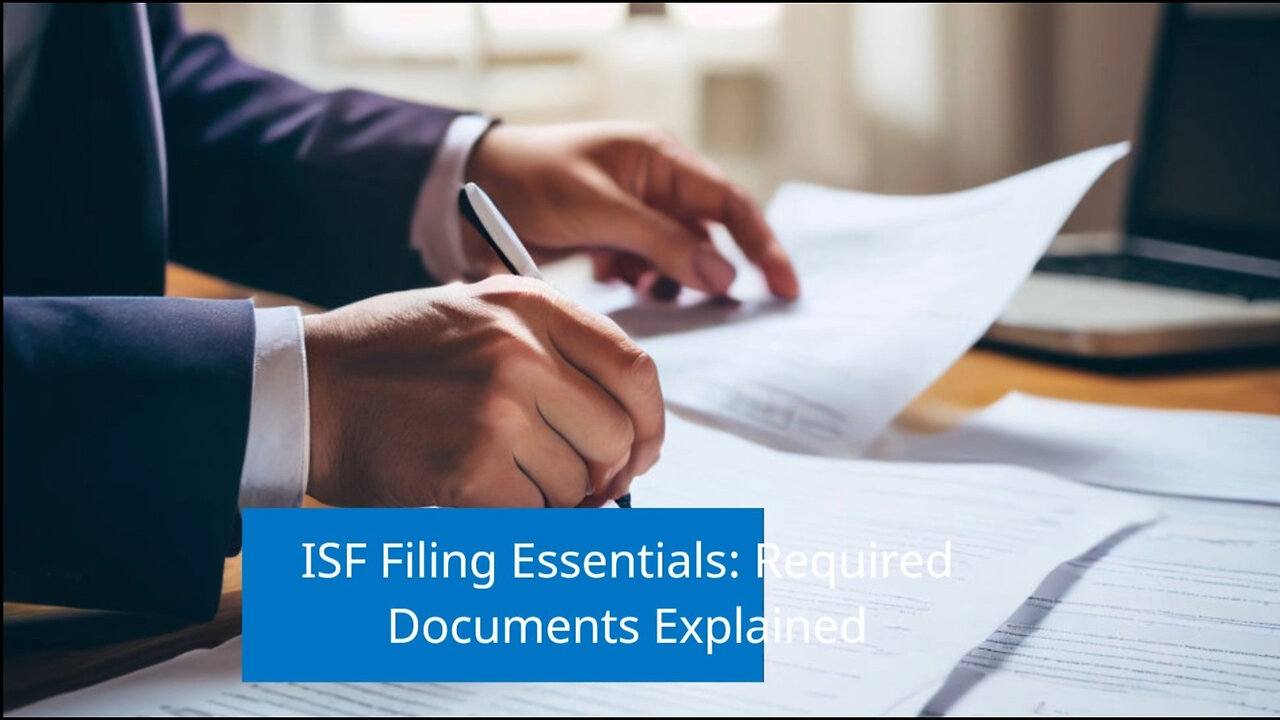Premium Only Content

Unraveling the Mystery: ISF Filing and Supporting Documents Demystified!
ISF Cargo | Phone: 786-865-0459
Email: isf@isfcargo.com | https://isfcargo.com
Welcome back to our channel, where we bring you the latest information on customs brokerage and international trade. In today's video, we will deep dive into the concept of customs duty calculation. Let's get started!
When it comes to importing goods, customs duty is an important aspect to consider. Customs duty is a tax imposed on goods when they are imported into a country. It is usually calculated based on the value of the goods, known as the customs value.
The customs value is determined by adding the cost of the goods, freight, insurance, and any other charges incurred before the arrival of the goods at the port of destination. This value is used to determine the amount of customs duty that needs to be paid.
Customs duty rates vary depending on the specific goods being imported and the country of import. These rates are usually published in a customs tariff, which is a comprehensive list of goods and their corresponding duty rates. The tariff may also include any preferential trade agreements or exemptions that apply to certain goods.
To calculate the customs duty, the customs value is multiplied by the applicable duty rate. For example, if the customs value of a shipment is $10,000 and the duty rate is 5%, the customs duty would be $500.
It is important to note that customs duty is not the only cost associated with importing goods. Other charges, such as handling fees, customs brokerage fees, and taxes, may also apply. These additional costs should be taken into account when determining the total cost of importing goods.
In conclusion, customs duty calculation is an essential part of the importing process. It is based on the customs value of the goods and the applicable duty rates. Understanding how customs duty is calculated can help importers accurately assess the costs involved and comply with customs regulations.
Thank you for watching our video. If you found this information helpful, please like and share it with others in the industry. Don't forget to subscribe to our channel for more insights and updates on customs brokerage. Until next time, happy trading!
#usimportbond #isfcustomsbroker #uscustomsclearing #isfentry
Video Disclaimer Here: This content is for educational use and not associated with any US government body.
00:25 - ISF filing is an electronic document submitted to CBP before a shipment arrives in the US, providing important cargo information.
01:15 - Supporting documents like SDS, phytosanitary certificates, commercial invoices, etc., may be required for customs clearance depending on the nature of the goods.
01:58 - Working with a customs broker can help navigate documentation requirements and ensure compliance with CBP regulations.
02:35 - While ISF filing itself does not require supporting documents, having them ready and accessible is crucial to avoid delays and penalties during customs clearance.
-
 LIVE
LIVE
Dr Disrespect
3 hours ago🔴LIVE - DR DISRESPECT - WARZONE - SHOTTY BOYS ATTACK
6,163 watching -
 33:47
33:47
Stephen Gardner
3 hours ago🔥Pentagon Whistleblower UNLEASHES on Biden and Obama!
25.4K33 -
 2:20:30
2:20:30
The Dilley Show
4 hours ago $12.83 earnedRoger Stone in Studio plus Q&A Friday! w/Author Brenden Dilley 12/27/2024
35.3K -
 1:57:02
1:57:02
The Charlie Kirk Show
3 hours agoThe Great H-1B Battle + AMA | Lomez | 12.27.24
78.9K33 -
 11:39
11:39
Russell Brand
1 day agoWhat You're Not Being Told About The Syrian War
119K202 -
 DVR
DVR
Bannons War Room
1 year agoWarRoom Live
101M -
 1:49:21
1:49:21
Film Threat
5 hours agoBEST AND WORST OF 2024 + SQUID GAME SEASON 2 | Film Threat Livecast
30.9K2 -
 1:06:04
1:06:04
The Big Mig™
19 hours agoGlobal Finance Forum Powered By Genesis Gold Group
26.9K2 -
 34:38
34:38
Tudor Dixon
4 hours agoThe Changing Landscape Between Tech and Politics with Mike Benz | The Tudor Dixon Podcast
19.6K1 -
 2:23:58
2:23:58
Matt Kohrs
14 hours agoRumble's Stock Is EXPLODING!!! || The MK Show
76.4K6